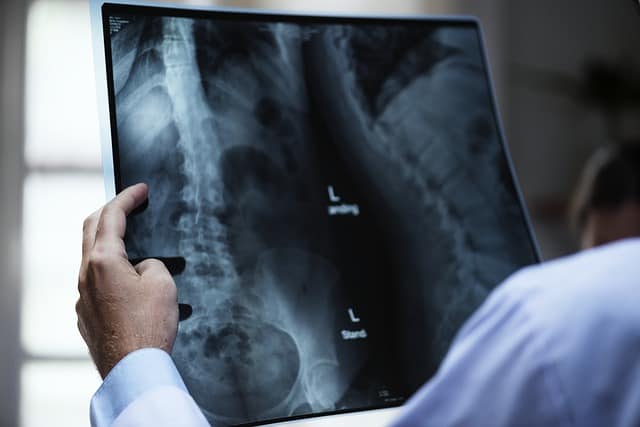
Radiology, or medical imaging, is a cornerstone of medical science, but interpreting the images manually can be extremely time-consuming. Training AIs to recognise patterns in medical scans could help doctors diagnose conditions more quickly, while also freeing medical personnel from the repetitive task. The collaboration with Nvidia is part of King’s London Medical Imaging & AI Centre for Value-Based Healthcare, an ongoing project intended to transform 12 clinical pathways in oncology, cardiology and neurology.
The partnership will see King’s using Nvidia’s DGX-2 systems, 2-petaflop supercomputers developed specifically for AI research. It will also use Nvidia’s Clara AI toolkit, in combination with the university’s in-house imaging system NiftyNet, as well as third-party imaging technologies from partners such as Kheiron Medical, Mirada and Scan. As part of the project, researchers and engineers from Nvidia and King’s will join clinicians from major London hospitals onsite at King’s College Hospital, Guy’s and St Thomas’, and South London and Maudsley.
“This centre marks a significant chapter in the future of AI-enabled NHS hospitals, and the infrastructure is an essential part of building new AI tools which will benefit patients and the healthcare system as a whole,” said Professor Sebastien Ourselin, head of the School of Biomedical Engineering & Imaging Sciences at King’s College London.
“The Nvidia DGX-2 AI system’s large memory and massive computing power make it possible for us to tackle training of large, 3D datasets in minutes instead of days while keeping the data secure on the premises of the hospital.”
https://www.theengineer.co.uk/ai-medical-diagnostics/
According to Nvidia, the radiology project will be the first time a ‘federated learning’ model has been used to develop AI algorithms for the NHS. Federated learning allows AIs to be developed at multiple sites, using data from individual hospitals, without the need for data to travel outside of its own domain. This allows NHS trusts to maintain security and governance over their own data, with different AI models developed for each trust based on the demographics and clinical attributes particular to the local area. However, the NHS will be able to merge the different AIs to build an overarching model, with local data never needing to be shared centrally.




Nanogenerator consumes CO2 to generate electricity
Whoopee, they've solved how to keep a light on but not a lot else.